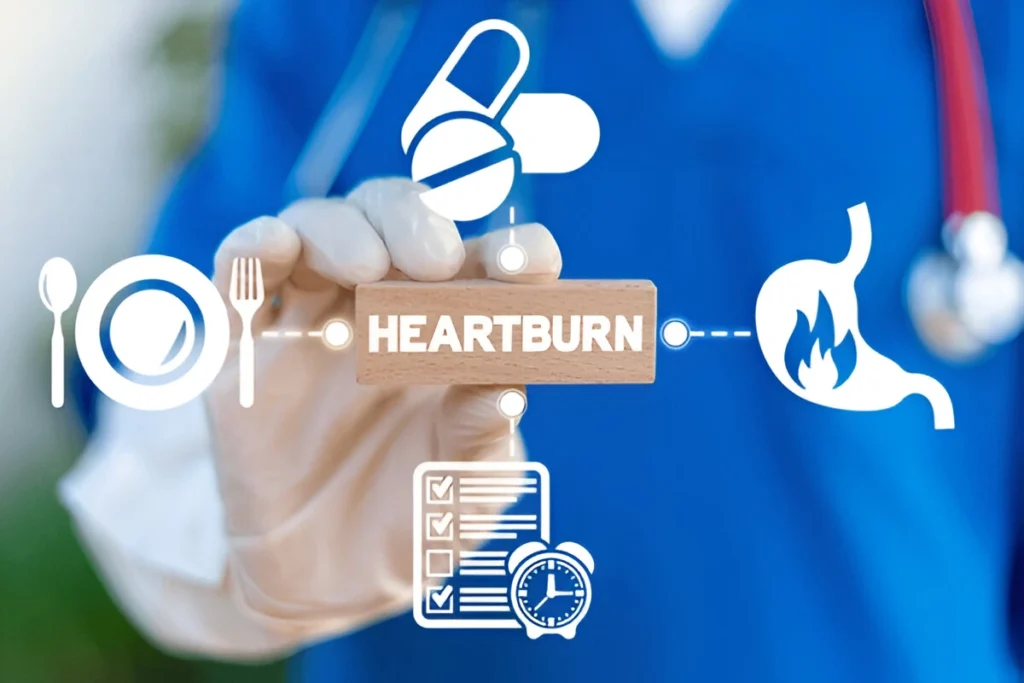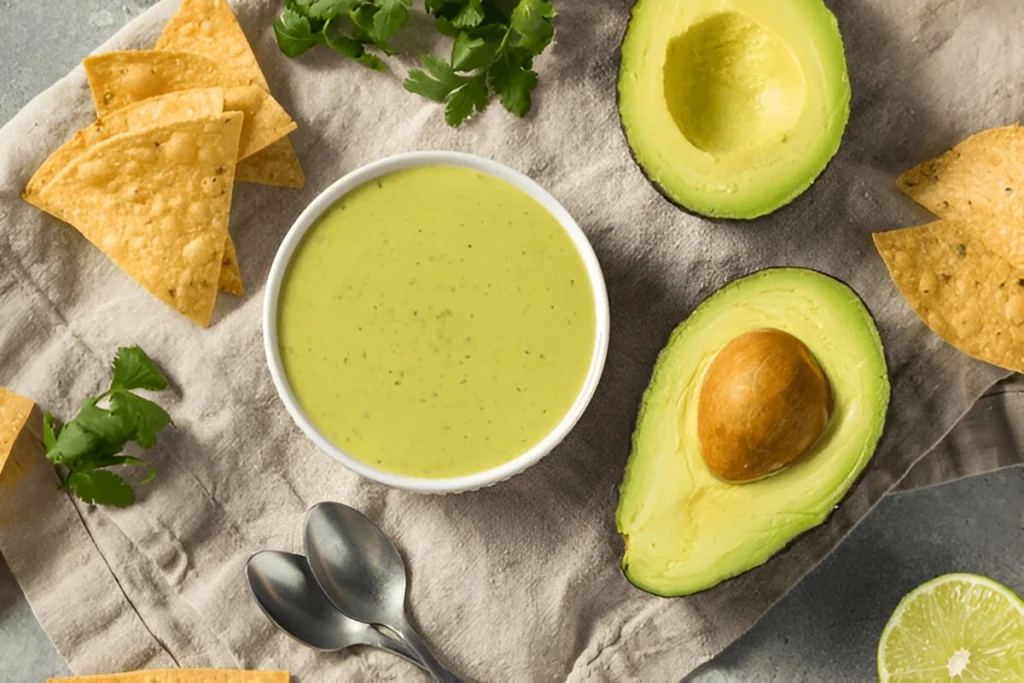Pregnancy often sparks curiosity about dietary dos and don’ts, leaving many moms-to-be pondering their favorite meals. One question that pops up frequently is: Can I eat spicy food while pregnant? With all the advice and opinions floating around, it’s easy to feel overwhelmed. Don’t worry! We’ve covered you with a detailed, research-backed article addressing your burning (pun intended) questions about spicy foods during pregnancy.
This guide will give you a clear picture, from understanding how spicy food interacts with your changing body to exploring its effects on the baby. Let’s dive in!
Can I Eat Spicy Food While Pregnant?
Yes, in most cases, it’s safe to eat spicy food while pregnant! The safety of spicy food depends on your personal tolerance and overall health during pregnancy. Spicy dishes won’t harm your baby directly but may cause discomfort.

What Science Says About Spicy Foods During Pregnancy
Scientific research shows no direct harm from consuming spicy foods during pregnancy. However, your changing hormones can make you more sensitive to certain foods, including spicy ones. Capsaicin, the compound that gives chili peppers their heat, doesn’t cross the placenta or affect fetal development.
That said, some women experience increased heartburn or nausea due to hormonal shifts, making spicy foods less appealing.
Does Spicy Food Affect the Baby?
No, spicy foods won’t harm your baby. Your baby is safely cushioned in amniotic fluid, which protects them from any external irritants. Some moms worry spicy food might “spice up” the baby’s temperament—don’t worry, that’s just a myth!
Why Do Pregnant Women Crave Spicy Food?
Craving spicy foods during pregnancy is surprisingly common. But why does this happen?

The Role of Hormonal Changes
Hormonal surges during pregnancy can alter your taste buds and cravings. Progesterone, for instance, relaxes smooth muscle, influencing digestion and making you crave more flavorful or intense foods.
Cultural and Psychological Factors
If you grew up in a culture that embraces spicy food, you may naturally crave it as a comfort food. Pregnancy cravings are often tied to nostalgia, emotions, and past experiences.
Benefits of Eating Spicy Foods During Pregnancy
Despite its reputation for causing discomfort, spicy food has surprising benefits for pregnant women.
Boosting Metabolism and Digestion
Capsaicin can slightly increase metabolism and may help stimulate digestion. This is especially helpful in later pregnancy, when sluggish digestion can lead to bloating.
Spicy Foods and Nutritional Content
Spices like turmeric, ginger, and cumin aren’t just flavorful—they’re packed with nutrients! For instance, turmeric contains curcumin, an antioxidant known for its anti-inflammatory properties.
Possible Side Effects of Spicy Food in Pregnancy
While spicy food isn’t dangerous, it can cause some unpleasant side effects.
Heartburn and Acid Reflux
One of the most common complaints is heartburn. As your uterus expands, it can push stomach acids upward, making spicy food more irritating.
Impact on Bowel Movements
Spicy foods can sometimes lead to diarrhea or abdominal discomfort, especially if you aren’t used to eating them regularly.
Is Spicy Food Safe in All Trimesters?
Spicy food can generally be enjoyed throughout pregnancy, but each trimester comes with its unique challenges. Let’s break it down:

First Trimester: Proceed with Caution
The first trimester is often marked by nausea, morning sickness, and heightened sensitivity to smells and tastes. Eating spicy food during this time might worsen nausea or cause additional discomfort.
However, some women report that spicy foods help alleviate their morning sickness symptoms. If that’s you, go ahead and indulge, but start with milder spices to see how your body reacts.
Second and Third Trimesters: Things to Watch
As pregnancy progresses, your growing uterus starts to crowd your stomach, increasing the likelihood of heartburn and indigestion. Spicy food in the second and third trimesters can exacerbate these issues.
To mitigate discomfort:
- Eat smaller, more frequent meals.
- Avoid spicy foods close to bedtime.
- Pair spicy dishes with bland sides, like rice or yogurt.
Common Myths About Spicy Foods and Pregnancy
Spicy foods are surrounded by myths, especially when it comes to pregnancy. Let’s set the record straight.
Myth: Spicy Food Induces Labor
The idea that spicy food can kickstart labor is widespread but lacks scientific evidence. While spicy foods may cause mild gastrointestinal irritation that could mimic early labor signs, they don’t directly trigger labor.
Myth: It Causes Miscarriages
This is another baseless claim. There’s no evidence linking spicy food consumption to an increased risk of miscarriage. However, excessive consumption that leads to dehydration or severe gastrointestinal distress could pose indirect risks, so moderation is key.
Tips for Safely Enjoying Spicy Food While Pregnant
Want to enjoy spicy food without the side effects? Follow these tips to keep your cravings and comfort in check.

Choosing Milder Spices
If you’re worried about overdoing it, stick to spices with a milder heat level. Paprika, turmeric, and cinnamon can add flavor without causing intense heat.
Pairing Spicy Dishes with Soothing Foods
Pairing spicy food with creamy or starchy sides can help balance the heat. Yogurt, avocados, and rice are excellent choices to reduce the impact of spiciness on your digestive system.
Spices to Embrace During Pregnancy
Some spices offer additional health benefits during pregnancy, while others should be used sparingly.
Nutrient-Rich Spices to Try
- Ginger: Helps with nausea and improves digestion.
- Turmeric: Rich in antioxidants and anti-inflammatory compounds.
- Cumin: Aids in digestion and may help prevent bloating.
Spices to Limit or Avoid
- Chili powder: While safe in moderation, too much can irritate your stomach.
- Nutmeg: High doses may have psychoactive effects, so use sparingly.
Foods to Avoid When Eating Spicy Meals
The wrong food pairings can amplify the discomfort caused by spicy dishes.

Beverages That Can Exacerbate Discomfort
- Carbonated drinks can worsen heartburn and gas.
- Caffeinated beverages, like coffee or tea, may irritate your stomach lining when paired with spicy meals.
Fatty or Fried Foods
Fatty foods can slow down digestion, making it harder for your stomach to process spicy ingredients. Stick to lighter, nutrient-dense meals.
Can Spicy Foods Help in Labor?
There’s plenty of anecdotal evidence about spicy food inducing labor, but what does the science say?
The Science Behind Spicy Foods and Labor
Capsaicin might stimulate the digestive tract, which could theoretically trigger uterine contractions. However, no conclusive evidence proves that eating spicy food can start labor.
Anecdotes vs. Evidence
Many women swear by spicy meals in their final weeks, but it’s likely coincidental rather than causal. If you’re nearing your due date and want to try it, there’s no harm—but don’t expect miracles.
Craving Spicy Food While Pregnant: What It Means
Cravings can feel random, but they often reveal underlying needs.
Cravings and Nutritional Deficiencies
Some researchers suggest that craving spicy food might indicate a need for certain minerals or nutrients, like sodium or magnesium.
Cravings as a Cultural Phenomenon
In many cultures, spicy foods are a staple. If you’ve grown up with spicy dishes, your cravings might simply reflect your comfort zone.
Managing Spicy Food-Induced Heartburn
Heartburn can be a significant downside of enjoying spicy dishes during pregnancy. Luckily, there are ways to manage it.

Home Remedies for Heartburn Relief
- Drink a glass of cold milk or eat a spoonful of yogurt.
- Chew sugar-free gum to increase saliva and neutralize acid.
Over-the-Counter Solutions (and When to Consult a Doctor)
If natural remedies don’t work, antacids like Tums can provide relief. Always consult your doctor before using any medication.
Can Spicy Foods Impact Breastfeeding Later?
Are you wondering if your spicy meals could affect breastfeeding? Here’s what to know.
Spicy Foods and Breast Milk Flavor
Spicy foods can subtly alter the flavor of breast milk, which might actually be beneficial. It exposes your baby to diverse tastes early on, potentially encouraging adventurous eating habits later.
Will the Baby Reject Spicy-Flavored Milk?
Most babies adapt well to slight flavor changes in breast milk. If your baby seems fussy, consider reducing spice levels temporarily.
Recipes for Pregnancy-Friendly Spicy Dishes
Craving spicy food but want to keep it safe? Try these recipes:

Easy and Safe Spicy Meal Ideas
- Spiced Lentil Soup: A warming dish with mild curry powder and turmeric.
- Avocado Salsa: A refreshing mix of avocado, lime, and just a pinch of chili flakes.
Cooling Additions for Balance
- Add a dollop of plain yogurt to spicy curries.
- Serve spicy tacos with a side of guacamole or sour cream.
FAQs About Eating Spicy Foods During Pregnancy
- Can spicy food harm my baby during pregnancy?
- No, spicy food doesn’t harm your baby. It may cause temporary discomfort for you, like heartburn or nausea.
- Can spicy food cause preterm labor?
- There’s no evidence linking spicy food to preterm labor.
- Is it safe to eat spicy food every day during pregnancy?
- Yes, as long as it doesn’t cause discomfort or other digestive issues.
- Can spicy food affect morning sickness?
- It varies—spicy food might relieve or worsen nausea, depending on your tolerance.
- Are all spices safe during pregnancy?
- Most spices are safe in moderation, but avoid excessive amounts of nutmeg or intense chili powders.
- Should I avoid spicy food if I have heartburn?
- Not necessarily, but opt for milder spices and balance them with soothing foods like yogurt.
Conclusion
So, can I eat spicy food while pregnant? Absolutely! While spicy dishes are generally safe, your personal comfort and health should guide your choices. Embrace your cravings in moderation, listen to your body, and enjoy this flavorful journey through pregnancy!
